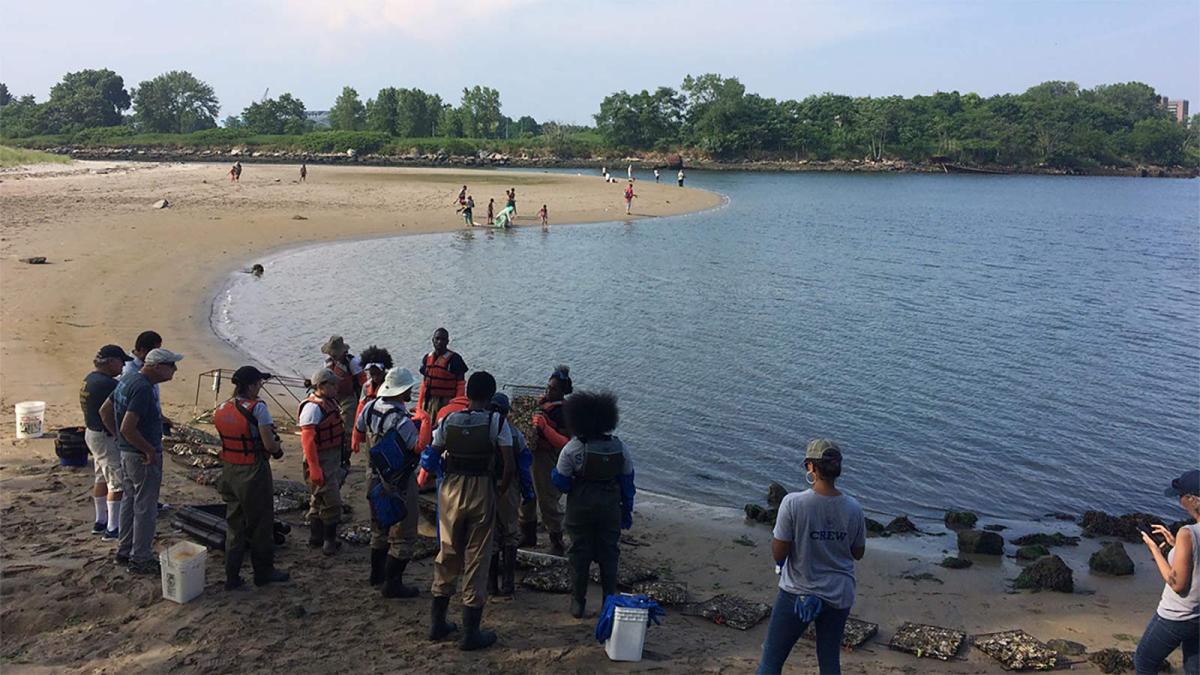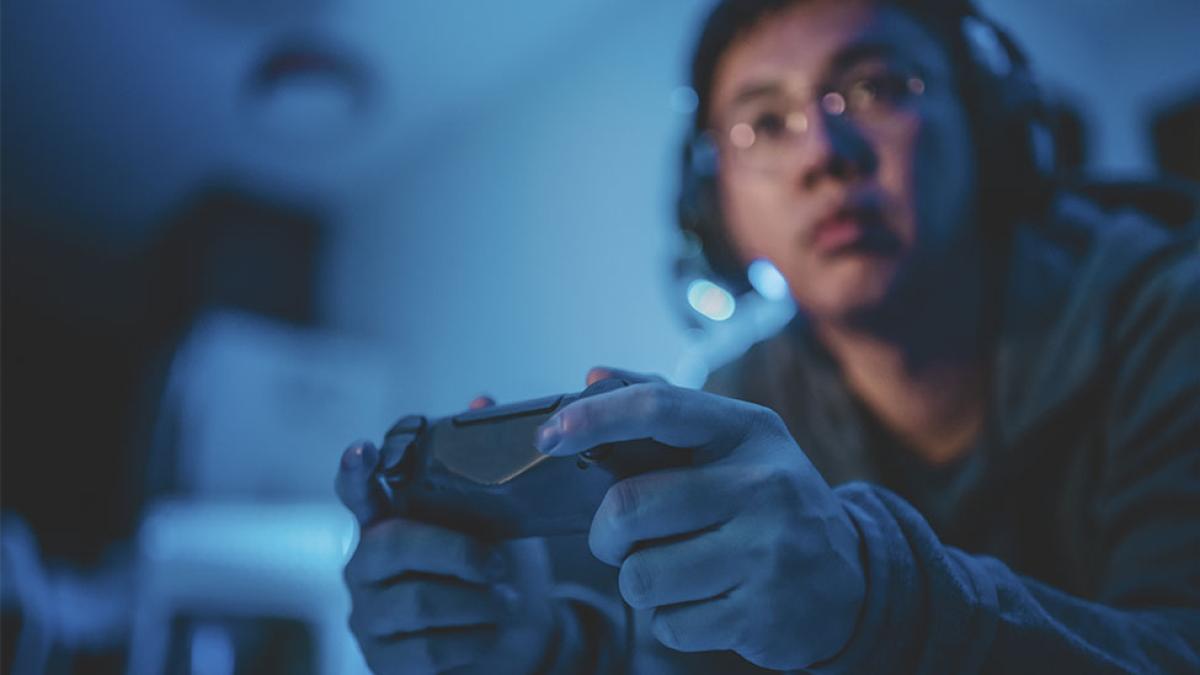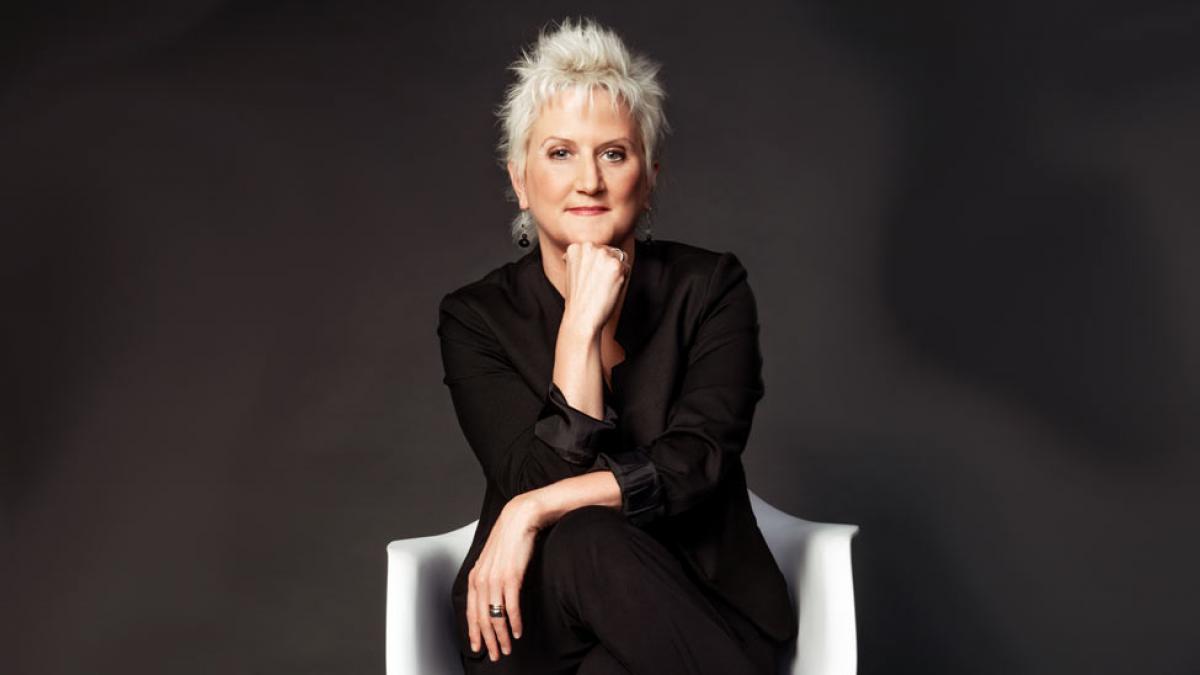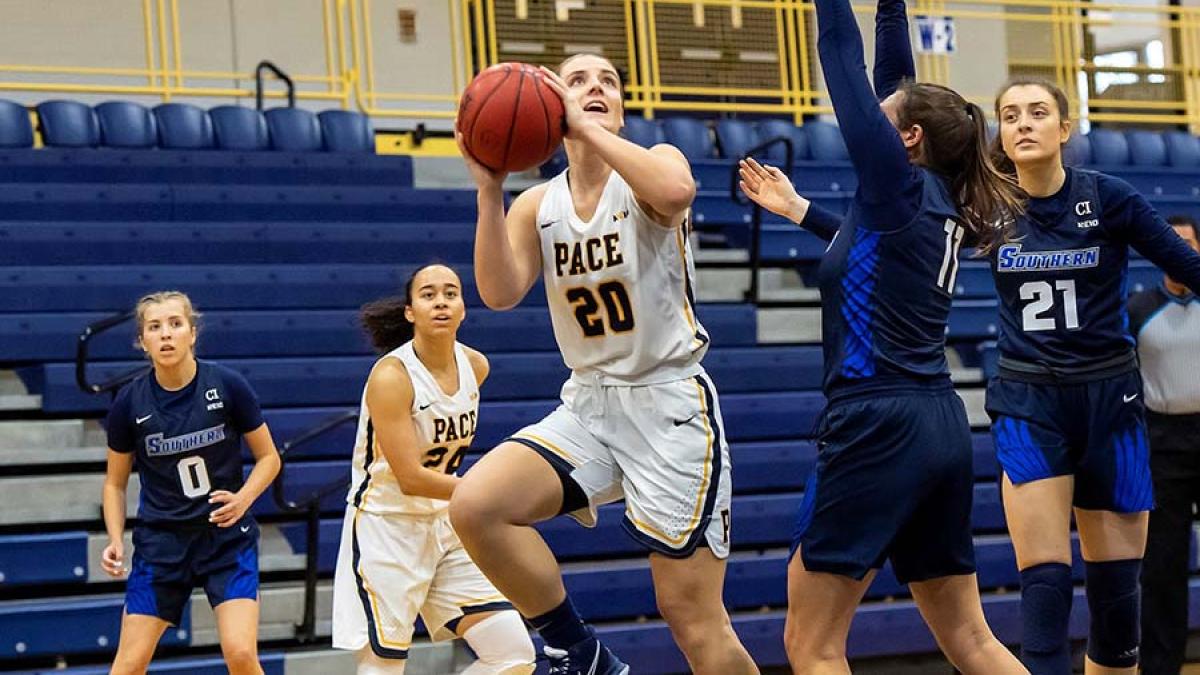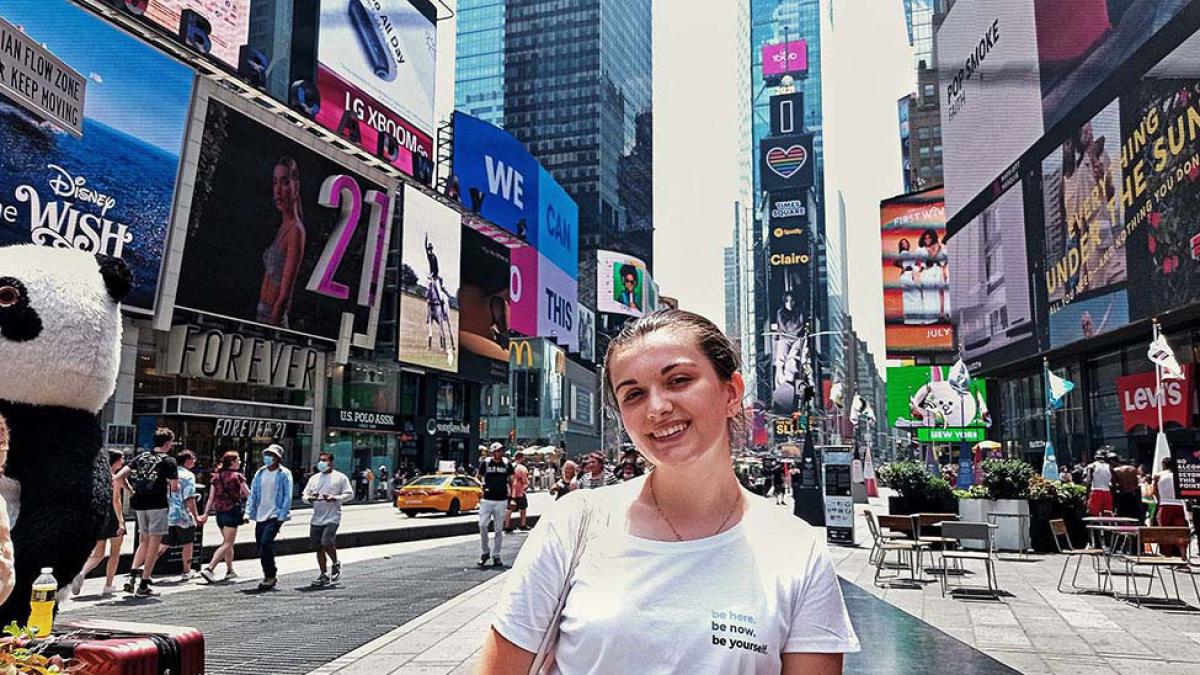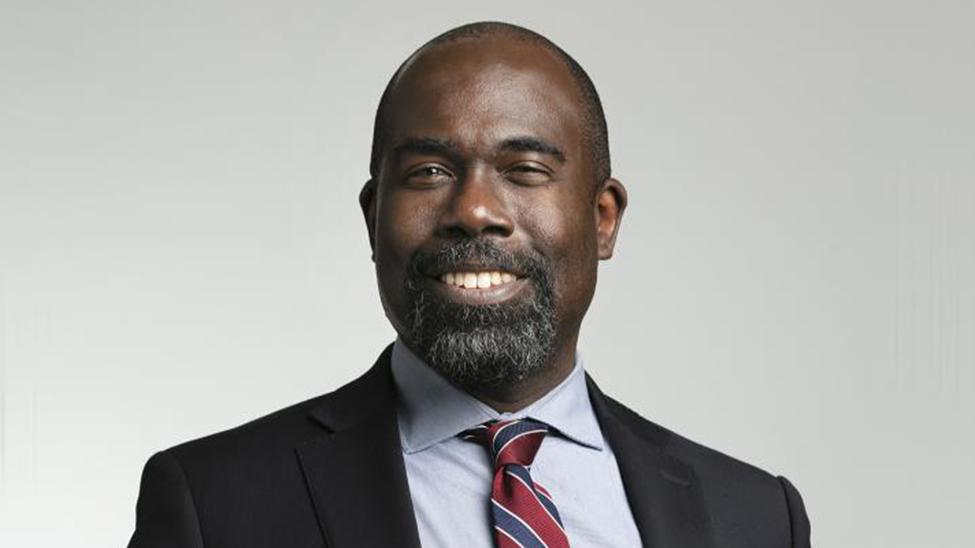
Haub Law Dean Horace Anderson Named to Prestigious 2022 Law Power 100 List
The Elisabeth Haub School of Law at Pace University is proud to announce that Dean Horace E. Anderson Jr. was named to the “2022 Law Power 100” list published by City & State New York magazine. The list recognizes “New York legal professionals who aren’t simply influential in their field, but powerful in New York’s governmental landscape.” Dean Anderson was ranked #88 on the prestigious list, which includes district attorneys, federal prosecutors, white-collar defense attorneys, public interest lawyers and others who have shaped New York politics and government.


The Elisabeth Haub School of Law at Pace University is proud to announce that Dean Horace E. Anderson Jr. was named to the “2022 Law Power 100” list published by City & State New York magazine. The list recognizes “New York legal professionals who aren’t simply influential in their field, but powerful in New York’s governmental landscape.” Dean Anderson was ranked #88 on the prestigious list, which includes district attorneys, federal prosecutors, white-collar defense attorneys, public interest lawyers and others who have shaped New York politics and government.
Horace E. Anderson Jr. is the ninth dean of the Elisabeth Haub School of Law at Pace University, appointed in December 2019. Prior to this appointment, Dean Anderson had been serving as Haub Law’s interim dean. Of Dean Anderson, the publication notes that, “In his two years as dean, Horace Anderson Jr. has focused on strengthening its offering of legal programs, including initiatives like the launch of the Pace Access to Justice Project and the Haub Sustainable Business Law Hub. Anderson also led the expansion of Pace’s part-time law degree program to include evening and weekend options. He has been a faculty member at Pace since 2004, with expertise in intellectual property, internet privacy and communications law.”
Also included on “The 2022 Law Power 100” list is Mimi Rocah, Westchester County District Attorney. Listed at #16, Mimi Rocah previously served as the Elisabeth Haub School of Law at Pace University Distinguished Criminal Justice Fellow. City & State states, “The Trump Organization already faces legal scrutiny from the Manhattan district attorney and the state attorney general’s office. Last year, Westchester County District Attorney Mimi Rocah joined the list of New York prosecutors eying the former president’s family business practices. Rocah aso made national headlines in January when she reported that law enforcement officials “missed opportunities” when investigating multimillionaire Robert Durst regarding the disappearance of his first wife in 1982.”
March 2022: A Message from President Krislov
President Krislov reflects on a return to "normalcy" on campus with the move back to Green COVID-19 Alert level and what that means for the Pace Community, the tragic loss of student Jordan Robinson, and his hopes for an exciting return to an in-person Commencement.
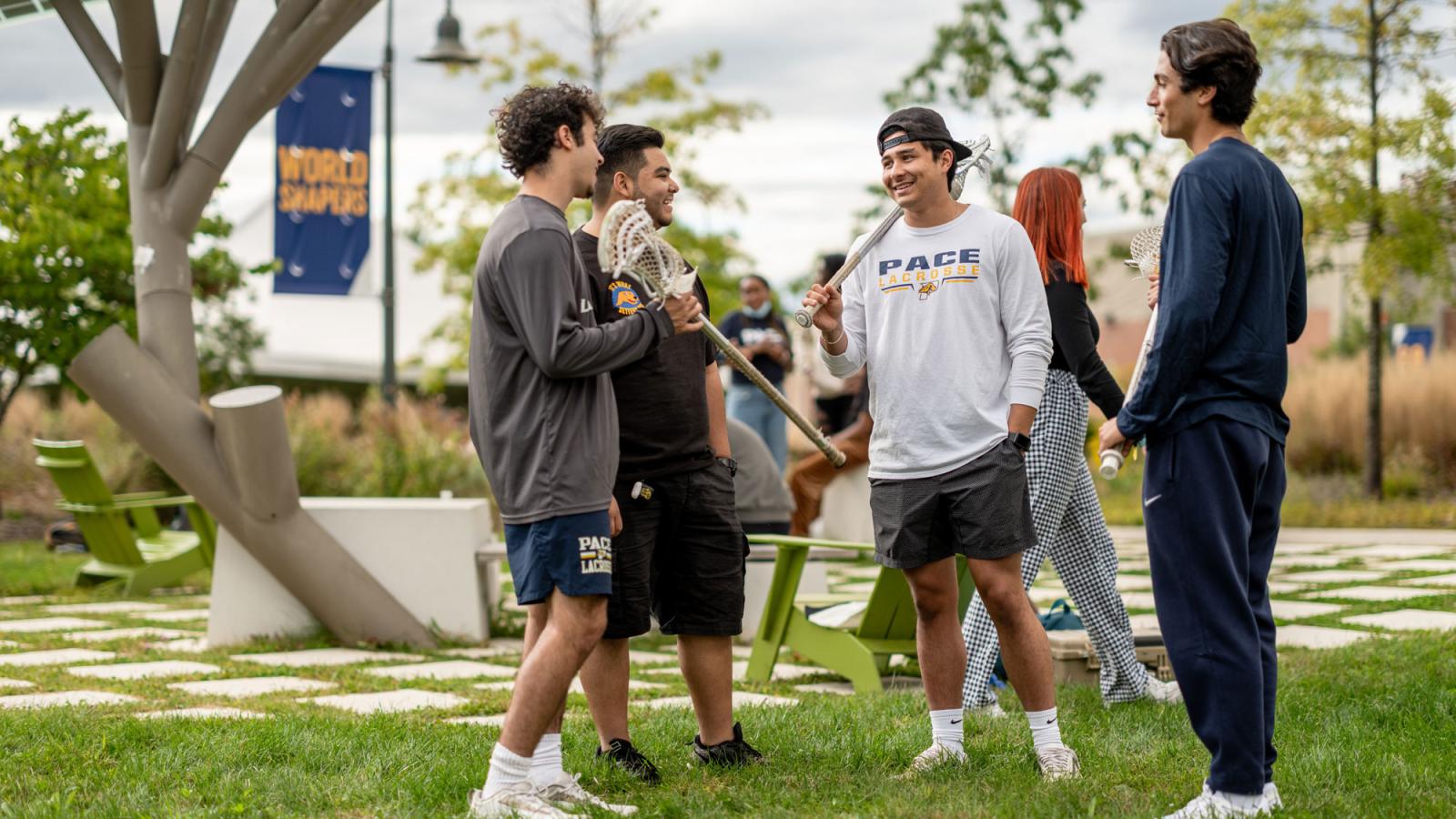
It is easy being green.
I mean no disrespect to Kermit the Frog, but it’s been a real pleasure to watch the three Pace University campuses move back to the Green COVID-19 Alert Level. And it’s been even better to see how well our community is responding to the change. When I’ve walked around our campuses this week, I’d like to think I’ve seen a little bit more joy, a little bit more freedom, and a little bit of pride that we’ve kept our community so safe and strong over the past 24 months.
What impresses me most is that I see a community that is still being careful. As you know, we’ve made Pace a “mask-friendly” environment. We continue to require masks in certain places—in classrooms during classes, on elevators, in healthcare settings—and we welcome them, even encourage them, in other places, especially crowded ones. Across Pace, I’ve seen diligent students, faculty, and staff responsibly continuing to wear masks as they walk down hallways or gather in lounges. It’s not required any longer, but the people of Pace know how to be responsible, how to take care of themselves, and perhaps most important how to look out for each other.
Now that we’re returned to normal capacities and more normal events, I’m looking forward to being out and about on our campuses. This week I’ll attend Haub Law’s annual Law Leadership Dinner, our first fully in-person event for alumni and friends in more than two years. I want to get back to all those in-person student activities I’ve missed—the celebrations and awards ceremonies and Midnight Breakfasts. As we ramp up Employee Recognition Month, which started on Friday, I want to get back to the in-person meetings and councils and recognition ceremonies. And perhaps most of all, I’m looking forward to Commencement 2022, our first in-person graduation celebration in three year. I’m excited for our big day, with thousands of graduates, family, friends, faculty, and staff, all gathered at the USTA Billie Jean King National Tennis Center.
Finally, I can’t speak of all this good news without acknowledging a horrible loss. Since I last wrote to you in Pace Now, Pleasantville sophomore Jordan Robinson passed away. I didn’t know Jordan, but everything I hear about him breaks my heart further. Jordan was a remarkable young man, kind and giving, who could light up a room. The outpouring of love for him on our Pleasantville Campus was both inspiring and a real tribute to the person he was.
Jordan was a believer in paying kindness forward. As we move forward, let us keep Jordan in our hearts, and let us use him as an inspiration to continue making the world a better place.
More from Pace
Through Digital Trash, an augmented reality art exhibit, Professor Will Pappenheimer and his mobile media students are elucidating an often-unseen problem in a truly innovative way.
Business students Ritvi Shah ’22 and Luanne Dinh ’22 talk about their experiences working with Pace’s Small Business Development Center and how they helped support New York City-based NAME GLO as it navigated the rough waters of business during a pandemic.
In his second semester, he interned for a Manhattan Borough President campaign. Last semester, he interned for Senate Majority Leader Charles Schumer’s district office. As a second-year student, Aman Islam is demonstrating what it means to be a go-getter, and he shows no signs of stopping.
New York's Not The Worst When It Comes To Property Taxes: Report
"The reality is you get what you pay for," Pace University Professor Vincent Barrella told Patch. Barrella, in addition to being chair of the department of legal studies and taxation at the Lubin School of Business, is also a former mayor of Point Pleasant Beach, New Jersey, so he knows whereof he speaks. "The tax burden comes with the services these communities provide. It's all service-driven."

Hugh Hefner, Jerry Lewis and the complications of talking about people after they die
"The lines of 'appropriate' and 'inappropriate' grief expressions, public conversations about their lives on social media – both positive and negative – and time limits, are immediately blurred and often unacknowledged," says Melvin L. Williams, assistant professor of communication studies at Pace University.
An inflection point for corporate social responsibility
Will private actors, including multinational corporations, lead a new era of environmental progress? On February 8, 2022, Roger Martella, GE’s Chief Sustainability Officer, delivered the Gilbert and Sarah Kerlin Lecture on Environmental Law at the Elisabeth Haub School of Law at Pace University (a video of the lecture is available here).
The Social Pulse: Pace University Makes a Difference and Celebrates Successful Advocacy Day
Pace University recently hosted New York State Senator Peter Harckham on a tour of its clinical simulation labs and held a roundtable discussion on addressing New York’s critical need for nurses and other primary care professionals. Read this article and learn how this visit helped inform the Senator's decision to advance new legislation, which would allow nursing students to complete a certain amount of required clinical training through simulation. If signed into law, this bill would make it easier for out-of-state home care service workers and nurses to apply for jobs in New York.
Commentary: Provider shortage is bringing health care to the brink
CHP Professor Andréa Sonenberg authors an op-ed lobbying for key legislation that would help address New York’s nursing shortage.
The Trash You Can't See
Through Digital Trash, an augmented reality art exhibit, Professor Will Pappenheimer and his mobile media students are elucidating an often-unseen problem in a truly innovative way.
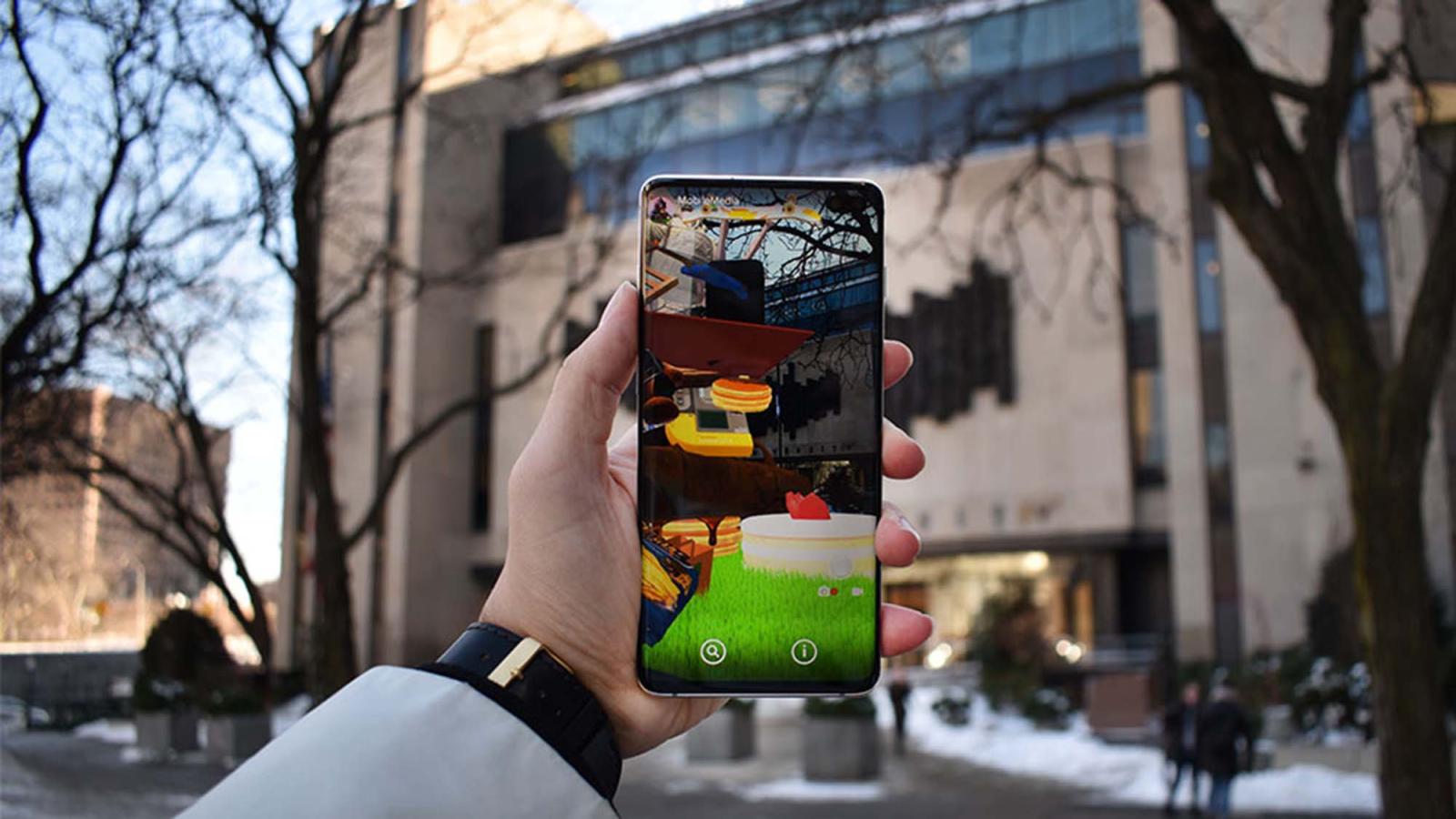
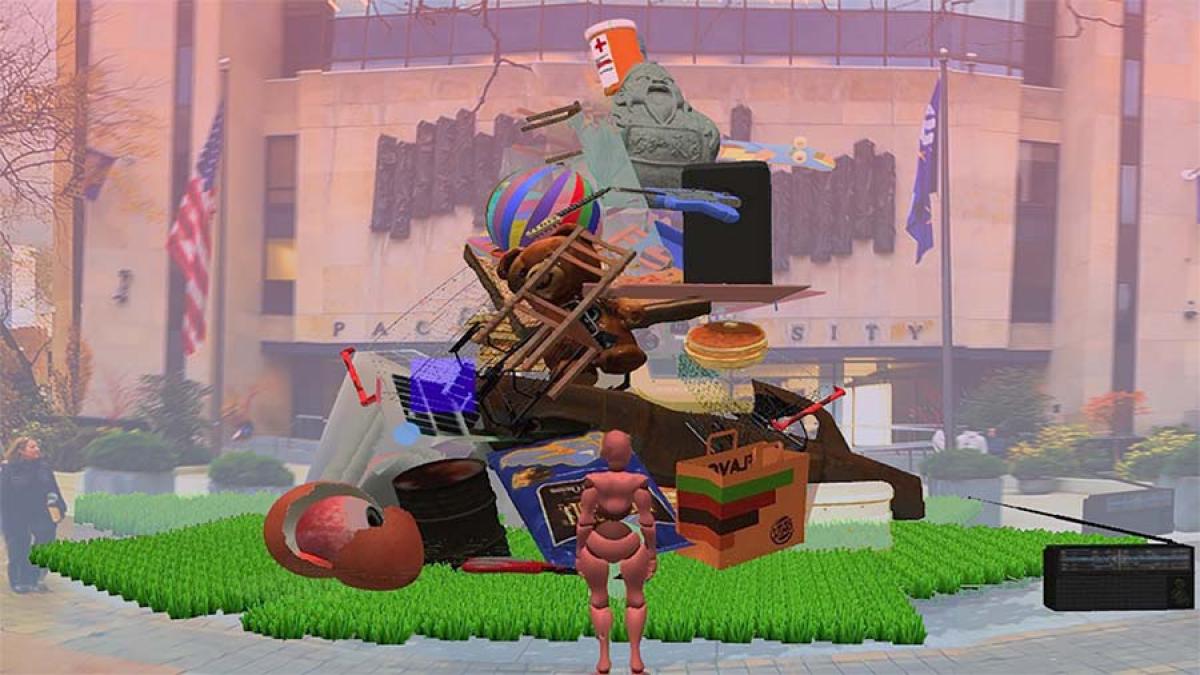
We often think of trash as something physical; we put garbage in a bin, that bin gets collected, and the cycle continues. When it comes to large-scale environmental problems, we might think of oil spills, reef decimation, or hazardous agricultural practices. In 2022 however, there is another, increasingly relevant type of trash that is accumulating by the nanosecond.
"There's a lot of invisible things about technology,” says Dyson Art Professor Will Pappenheimer, a pioneer in the use of augmented reality (AR) as an artistic medium. “We are calling attention to the idea that digital trash is not completely without cost."
This reality—that the files stored on our computers and servers aren’t entirely without environmental impact—was the idea behind Digital Trash, an exhibit recently showcased at the Pace Art Gallery. The exhibit was conceived and created by students in Pappenheimer’s ART 288 Mobile Media course, a class that requires students to imagine New York City a canvas and their phones as a window into a new dimension.
Yet, this was no ordinary exhibit. To demonstrate that digital trash is not entirely dissimilar to an empty McDonalds wrapper, or an empty plastic cup strewn about the sidewalk, the class created a virtual “trash heap” in front of One Pace Plaza as part of the exhibit, which could be viewed through one’s smartphone via AR.

Through Pappenheimer’s encouragement and technical expertise in the realm of AR, students in the class were able provide creative commentary on this real-world issue, in a way that arguably very much fits the subject matter at hand.
“I enjoyed collaborating with Professor Pappenheimer and our class as we experienced the excitement and challenges of AR together,” said Czarina Manipon ’22. “Creating a space limited to digital screens but offering greater imaginative potential presented a unique blending of artistic design with technical experimentation.”
“It really opened a new insight into digital art and AR capabilities for me,” added Thai Van Nguyen ’22. “It was different in the sense that I was still creating art, but I was sourcing it from online and trying to understand virtual space.”
The idea of digital trash, although perhaps not firmly in the mainstream, is likely only to grow in size and importance in the coming years. In 2020, it was estimated that each human creates about 1.7 MB in data per second, a number that will likely only grow with our increasing reliance on the digital realm. And as our files and file sizes grow, the energy that it takes to power all of this data—often supplied by large server farms consisting of thousands of computers—will also increase.
“I hope the concept of digital trash will gain more visibility within the Pace Community and beyond because of its potential as a conversation starter."
“We’re generating an enormous amount of digital files. We don’t really think about it, and we tend to think of digital trash as costing very little. But then a lot of people aren’t aware of these server farms, which are keeping this information and are constantly using up energy,” explains Pappenheimer. “The more files each person creates the more energy it takes.”
Pappenheimer also noted that while the Digital Trash exhibit doesn’t explicitly comment on emerging technologies like cryptocurrency and NFTs that the project can also reverberate in these areas. Bitcoin, for example, requires a considerable amount of energy in order to function effectively.
As businesses place increasing importance on Environmental, Social, and Corporate Governance (ESG), being more aware of the complications and environmental implications surrounding digital waste will likely only help Pace students be more prepared to tackle the ever-complex challenges of the future. The emerging phenomenon known as the metaverse, for example, will likely raise fascinating questions and solutions surrounding the ways the future might be powered.
By being challenged to express the evolving problem of digital waste in an innovative fashion, students like Nguyen and Manipon have been starting a dialogue in the Pace Community in a way that would certainly not have existed without this exhibit.
“There are so many clouds holding data, music, emails, anything, and everything but that doesn't mean there is infinite space,” said Nguyen. “There is still the energy source that powers the Cloud which has just as much contribution to the power running our planet. So, every decision we make is factored into Earth's life span, and it is important to be aware of that.”
“I hope the concept of digital trash will gain more visibility within the Pace Community and beyond because of its potential as a conversation starter,” added Manipon. “Themes such as the power of AR as a rising media, awareness of how we utilize digital space, or simply taking in the oddity of it, could each start engaging conversations between viewers just as it was for us putting it together.”
More from Pace
Dyson Environmental Studies and Science Professors Monica Palta and Anne Toomey have been conducting research in Coney Island Creek, documenting the existing environmental and social ecosystem. Their work aims to reshape the conversation surrounding urban waterfront development.
Dyson Biology Professor Melissa Grigione, PhD, has spent her career traveling all around the world to better understand a wide range of animal populations. She's now passing on what she's learned to the next generation.
Internet addiction, the rise of esports, and stigma surrounding digital gaming in China. Pace professor Marcella Szablewicz examines how new communication technologies impact a growing culture shift.
Exploring the Upside of Trauma
Psychology Professor Anthony Mancini has an unconventional take on trauma. There are many factors that determine how trauma affects us. And sometimes, the impact can ultimately be positive. In his research lab, Mancini explores the connections between trauma, cultural assumptions, and resilience.
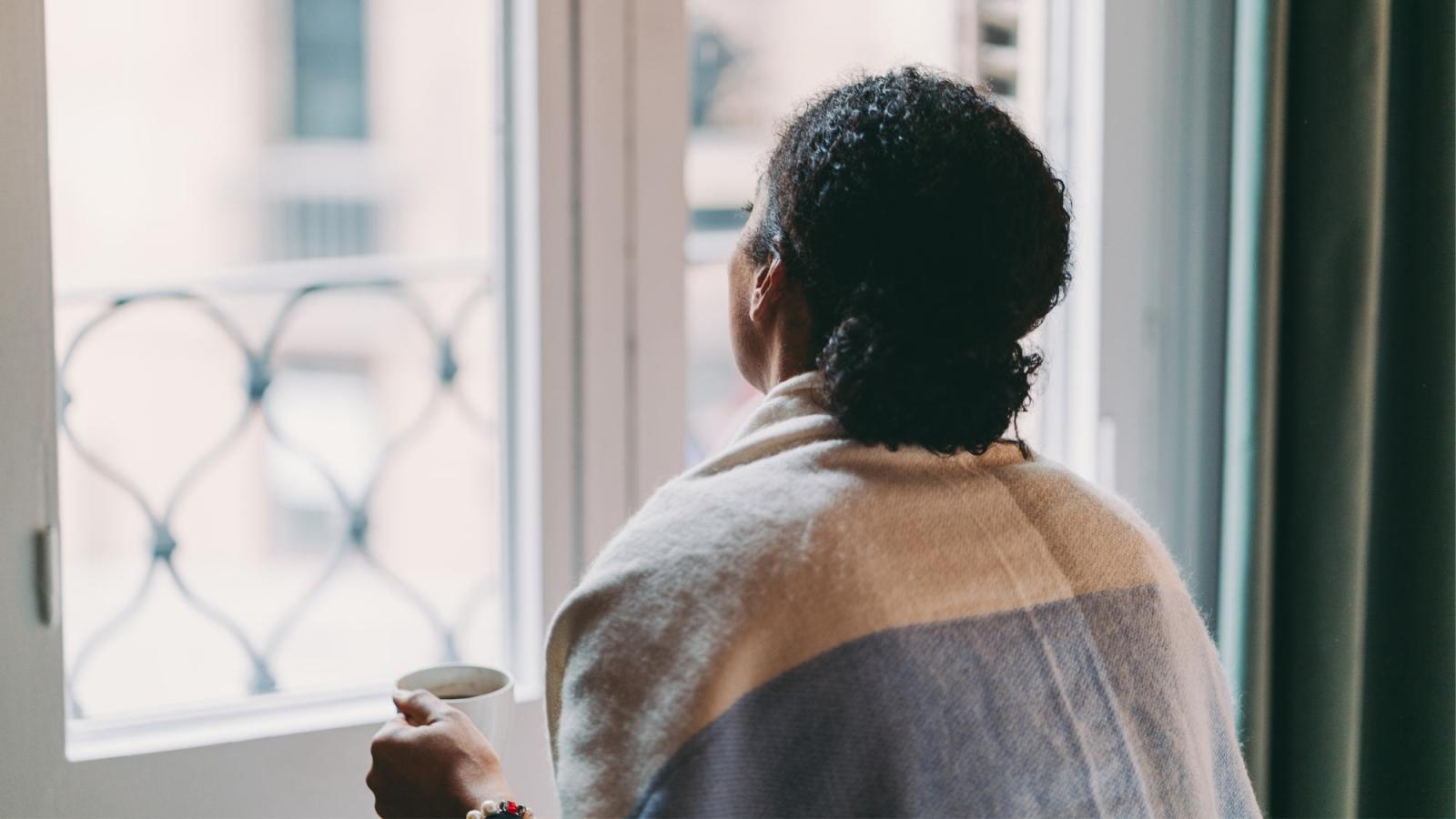
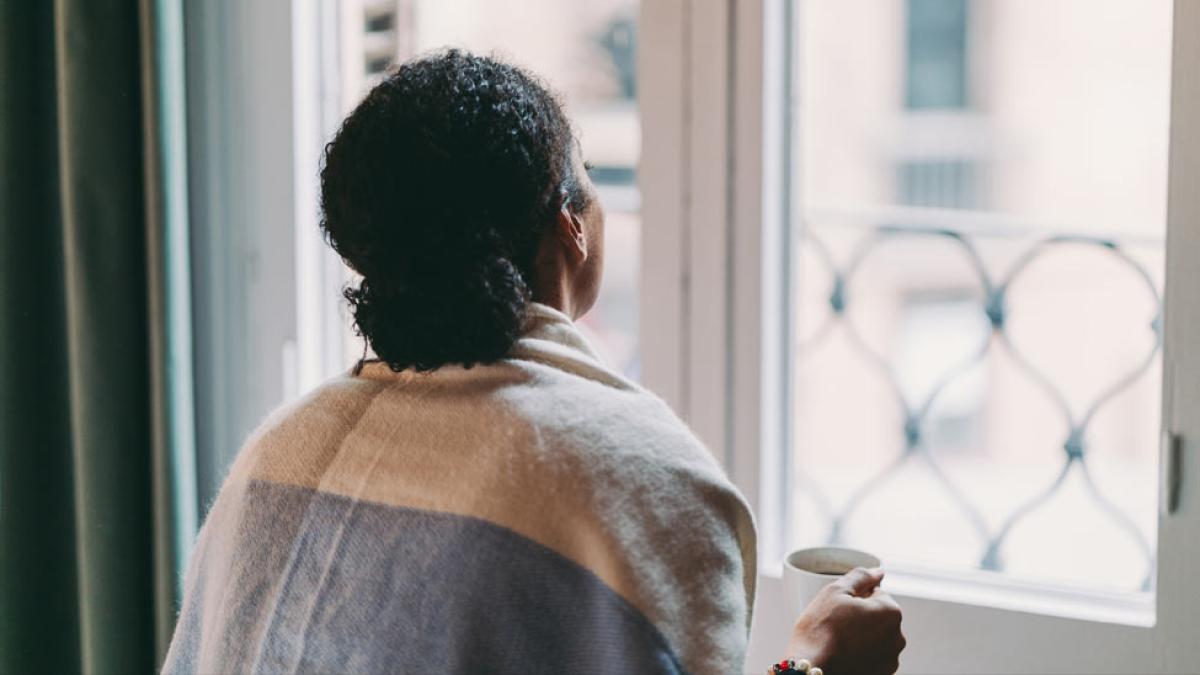
Psychology professor Anthony Mancini has an unconventional perspective on stress. “People assume that stress is always negative. But stress is actually more complicated than that.”
For example, the months following Hurricane Sandy in 2012 were extremely disruptive, filled with power outages, gas shortages, and many areas remaining closed. Even so, Mancini’s research into how Pace students were faring in the aftermath showed that they had lower levels of depression, better self-esteem, and more social support in the semester following the hurricane.
“Stress actually tends to stimulate social interaction, cooperation, and trust. The irony is that when something stressful or traumatic happens, you might actually end up better as a result. Obviously, that’s not always true. Trauma can also be very isolating, which is when PTSD happens. But ‘trauma’ is a very loaded word that’s lost meaning from overuse, making it harder to understand the different types and intensities of trauma as well as the difference in consequences.”
“The irony is that when something stressful or traumatic happens, you might actually end up better as a result.”
Mancini’s research focuses on those nuances. He’s particularly interested in uncovering how trauma and stress affect individuals, groups, and large social structures in order to determine why some are able to navigate through stress and trauma relatively well and end up functioning better as a result, rather than worse.
In his Trauma, Social Processes, and Resilience Lab, Mancini studies how people cope with and adapt to significant life stressors. In many universities, this kind of high-level original research is typically reserved for graduate and doctoral students. But Mancini says, “I’m always delighted when undergrads contact me. They’re motivated and curious, and I have them doing the same tasks as upper-level students.”
Mancini is currently writing a book—a hybrid memoir combining his own childhood experiences and the science of positive adversity. “I want people to know that adversity in childhood is not a life sentence; I find it objectionable that it’s portrayed that way, having had my own share. It’s not a good thing to tell children that they’ve been traumatized. Our psychological makeup is highly susceptible to influence. I don’t mean to dismiss that there is an impact with trauma, but it’s complex, and there are a lot of factors that go into determining the level and intensity of that impact. This book is an effort to tell the story and unpack and examine the assumptions about childhood trauma in light of scientific, empirical research.”
More from Pace
Through Digital Trash, an augmented reality art exhibit, Professor Will Pappenheimer and his mobile media students are elucidating an often-unseen problem in a truly innovative way.
Rhonda Miller, head of Pace’s BFA in Commercial Dance, wanted to build a different kind of dance program. “I wanted it to be relevant and useful—to include all forms of dance and the practical business skills dancers need but so often don’t have. We’re giving students the tools they need to navigate show business and make a living in dance.”
S. Brian Jones, Pace University’s assistant dean for diversity and equity in theater and media arts, wants young artists to stop waiting for someone else’s approval. He’s leading the charge in giving Pace students the tools they need to write their own success stories.
The Unstoppable Aman Islam
In his second semester, he interned for a Manhattan Borough President campaign. Last semester, he interned for Senate Majority Leader Charles Schumer’s district office. As a second-year student, Aman Islam is demonstrating what it means to be a go-getter, and he shows no signs of stopping.
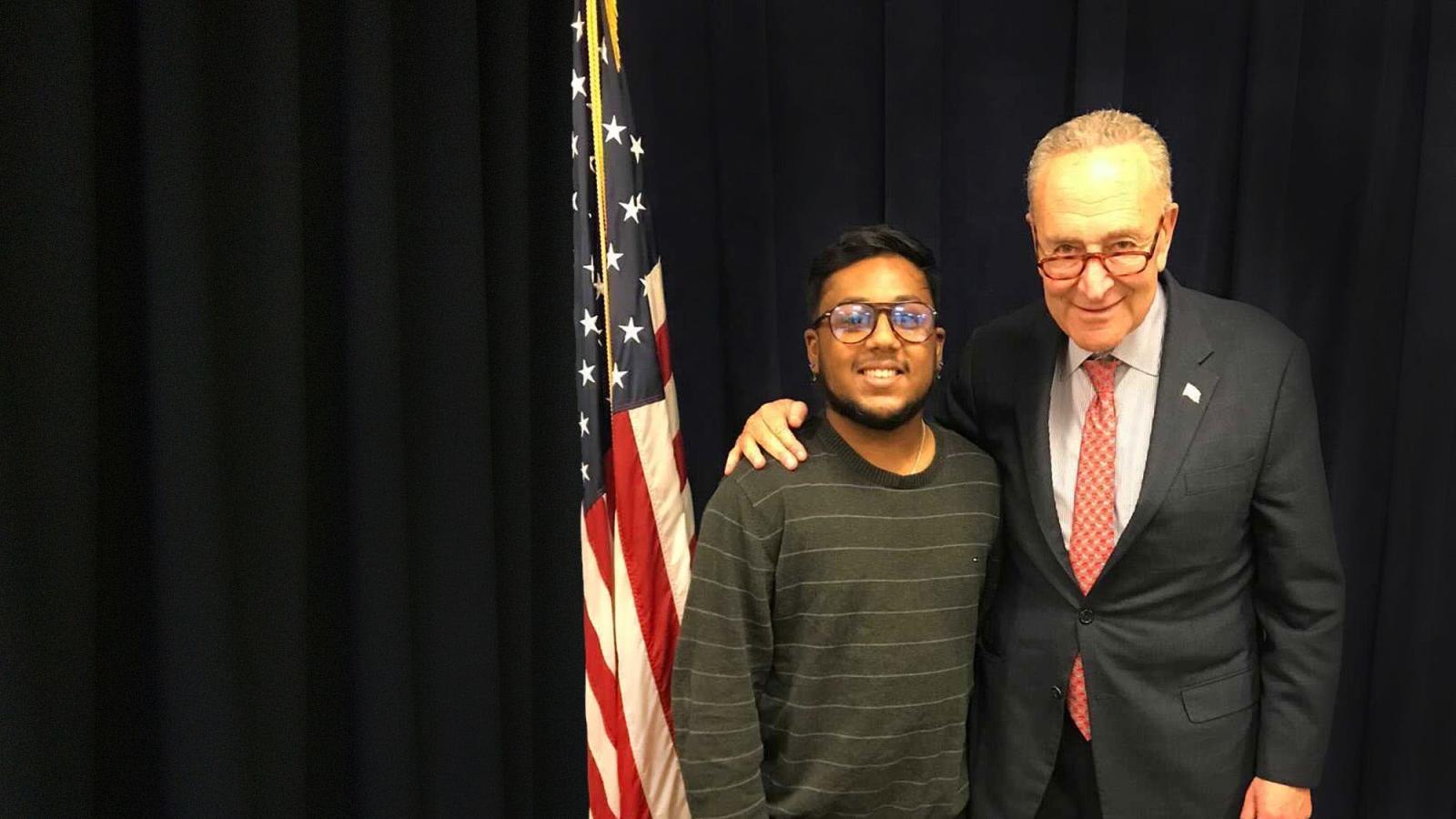

The moment Aman Islam ‘24 arrived at Pace, he was ready to get going.
As a second-year student, Aman has already built an impressive resume working on the campaign for Manhattan Borough President Mark Levine and interning for Senate Majority Leader Charles Schumer’s district office.
Speaking with Aman, you get the sense that nothing can slow him down. He even conducted our (virtual) interview through a case of COVID-19, waving a hand and saying, “I’m feeling better today.”
As a political science major, Aman wasted no time taking advantage of the opportunities you can only find in New York City. During his first year at Pace, he joined the campaign for Mark Levine as Manhattan Borough President and had the experience of a lifetime, saying, “It was probably the most influential thing I’ve done thus far. A lot of Pace students were on the campaign with me. It was all about building that organizing experience that is helping me to do other opportunities now.”
Opportunity begets opportunity and working on Levine’s campaign opened up the door for Aman to work in Leader Schumer’s office. Aman explains how a connection from Levine’s campaign introduced him to the internship. “Me getting that internship as a freshman helped me get this internship as a sophomore.” After a rigorous application process, he was chosen as an intern—and it was time to get back to work.
Of course, with an ongoing global pandemic, Aman and the other interns had to adapt. As an outreach intern, Aman spent his time reaching out to different organizations and coordinating virtual events for the Senator. Even in a remote environment, Aman gained unique insights into the dynamics of such an influential government office. “I really saw how politics and government are sometimes different,” he says.
“Me getting that internship as a freshman helped me get this internship as a sophomore.”
After months of working virtually, Aman finally met the Senate Majority Leader. He recounts, “I got to sit in a room with a whole bunch of people from different colleges around the city. Seeing myself there, in this coveted internship with people who go to Columbia and Princeton, just shows the opportunities you can get regardless of who you are.”
Currently, Aman is focusing on his studies, but is considering returning to the internship, and he (and Senator Schumer) both think more Pace students should apply. According to Aman, “The Senator said to me, ‘We need more Pace students like you to join the program.’”
Aman insists, “If you’re in the political science field, even as a freshman, go apply to these internships, because I had so many great opportunities thus far and I’ve built such a network among people in my field already. It’s super influential and it’s definitely going to get me places... The possibilities are endless now that we’re back in-person. Just go for it.”
More from Pace
From having an entire season cancelled to vying for the NE-10 Conference title, Pace Women’s Basketball has been making the most of their return to action. Coach Carrie Seymour and team co-captain Lauren Schetter discuss this year’s success amidst unorthodox circumstances, and reflect on Coach Seymour’s major milestone of 500 career wins at Pace.
Julia Sroczyk always dreamed of traveling to New York City. Through the Kosciuszko Foundation and the English Language Institute at Pace University, she was able to see her dream come true.

